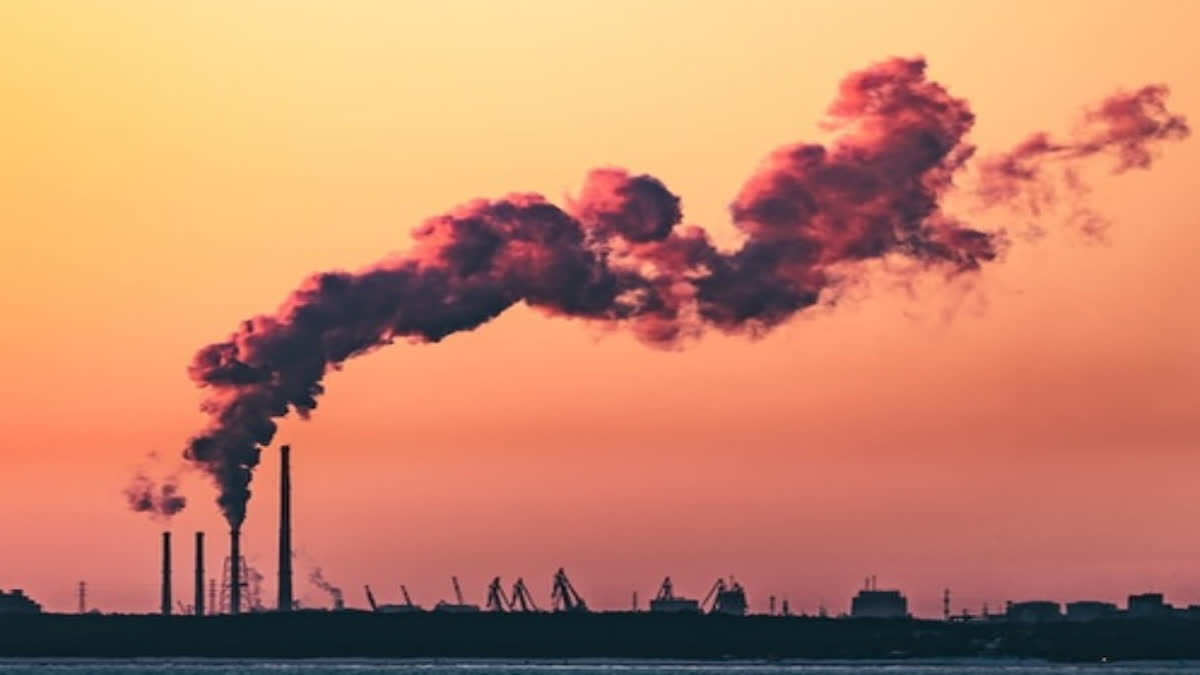Dubai: A prominent developing-world leader on the issue of climate change said Monday that global taxes on the financial services, oil and gas, and shipping industries could drum up hundreds of billions of dollars for poorer countries to adapt and cope with global warming.
Barbados Prime Minister Mia Mottley focused on how poorer countries, with help from richer countries and international finance, could shoulder the astronomical costs for the world to adapt to climate change, reduce its future impact, and pay for losses and damage caused as climate trouble like floods, forest fires and heat waves rip through communities.
The U.N. climate summit known as COP28, which is being presided over by the head of the United Arab Emirates' biggest oil company, put its attention Monday on how developing countries could possibly pay trillions of dollars that experts say they will need to cope with global warming.
This has probably been the most progress we've seen in the last 12 months on finance," Mottley told reporters about pledges to fund the transition to clean energy, adapt to climate change and respond to extreme weather events.
"But we're not where we need to be yet, she said. Small island nations have been pushing climate finance in the negotiations, saying it's vital for the countries to be able to adapt to rising seas encroaching on their land.
Cedric Schuster, the minister for natural resources of Samoa, said he's optimistic that the climate talks could make headway on the finance issue, but urged that countries are still a long way off where they need to be.
Schuster, who is also chair of the Alliance of Small Island states, said Samoans want to be assured that they will survive ... Their trust in us is to be here, to amplify their voices and for the world to understand the outcome of their concerns and for us to make sure the right global decisions are made.
Climate activists chimed in on the issue at the two-week conference in Dubai, by staging a protest at the sprawling venue that's taking in tens of thousands of leaders, economists, business leaders, philanthropists and others to find a way to revamp the way the world generates and uses energy in the 21st century.
Billions, not millions! Fill the fund now! they chanted, referring to the loss and damage fund for countries impacted by climate harm. Countries, including Germany and UAE, have been pledging hundreds of millions into the fund.
But Eric Njuguna, an activist from Kenya, said, we need the rich countries to pay into the loss and damage fund on the scale of hundreds of billions. Mottley praised the formal launch of a loss and damage fund at COP28 that organizers say has already drawn some $720 million in commitments, but said that a far cry of the $420 billion with a B needed.
Mottley said a tax on global financial services, set at a 0.1 percent rate, could raise $420 billion for it, not $720 million where we are today." If we took 5% of oil and gas profits last year oil and gas profits were $4 trillion that would give us $200 billion, Mottley said. If we had a 1% tax on the value of shipping that, last year, the value of that was $7 trillion -- that would give us $70 billion.
The G20, a group of key developing and industrialized countries that are responsible for four-fifths of all greenhouse gases, said in New Delhi earlier this year that developing countries will need $5.9 trillion by 2030 to meet their climate goals. They say another $4 trillion is needed if they're to get on track to have net-zero emissions by 2050.
The United States, the world's richest country, has never adopted a global tax and Republicans in the U.S. Congress are loth to adopt new taxes and are especially hesitant to fund many multilateral institutions and programs.
It's not easy to levy an international tax. It needs countries agreeing to make those taxes, said Lord Nicolas Stern, a co-chair of a panel of experts looking into the cost of financing the fight against climate change.
And poorer countries need money up-front to make investments in renewables possible. Where we're talking about climate change, I think the maritime, and oil and gas, and travel are of particular relevance to this issue," Stern said. "And that means countries getting together."
So we can see what to do increase to increase the investment: It's got to be big, he added.
Read More
- COP28 2023: Top world leaders will speak at UN climate summit. Global warming, fossil fuels will be high in mind
- 6 reasons why global temperatures are spiking right now
- Course of cyclones becoming unpredictable due to climate change: INCOIS-Andhra University study
